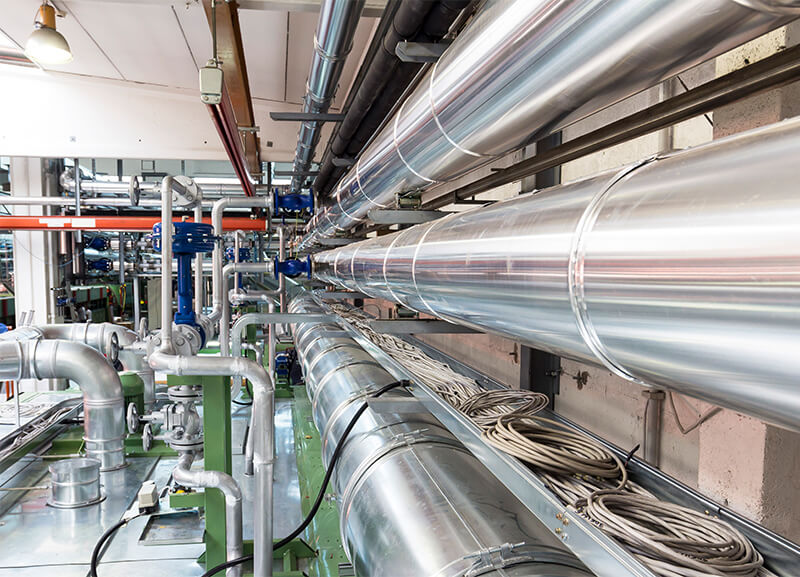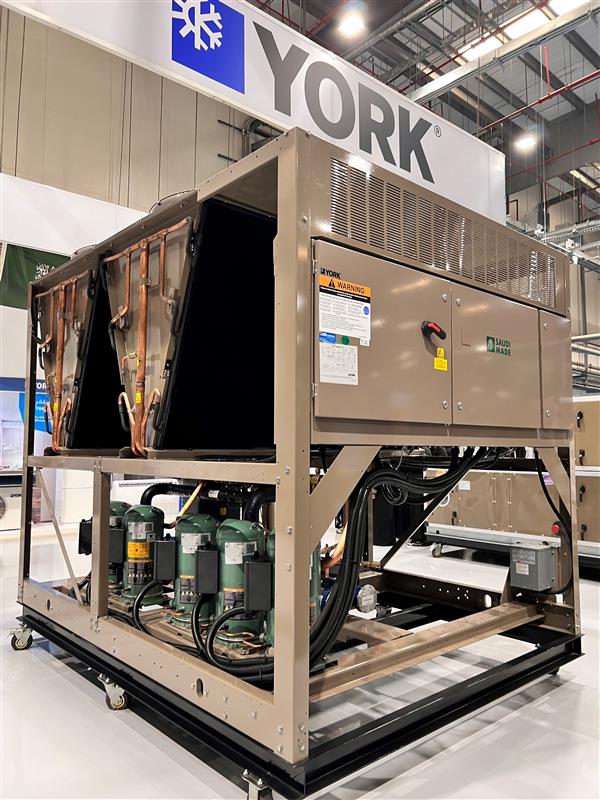Learn why many homeowners trust HVAC experts for high-performing climate control
Exploring the Vital Parts of an Efficient HVAC System
An effective cooling and heating system is constructed on several critical elements that function in harmony. Each part, from the thermostat to the ductwork, plays an important function in preserving convenience and power performance. Recognizing these elements is important for maximizing efficiency and enhancing indoor air top quality. As one takes a look at these parts, the intricate relationships between them expose insights into enhancing overall system efficiency. What details factors add most to this performance?
The Function of the Thermostat in A/c Efficiency

Usually forgotten, the thermostat plays an important role in the performance of HVAC systems. This little device works as the key control center, managing temperature level setups and ensuring perfect comfort within a space. By accurately sensing the ambient temperature level, the thermostat interacts with the home heating, air, and ventilation conditioning devices to preserve the desired climate
An effective thermostat decreases energy usage by activating the a/c system only when necessary, consequently avoiding extreme home heating or air conditioning. Modern programmable and wise thermostats enhance this performance further by permitting customers to establish schedules and remotely adjust settings, adapting to everyday regimens.
Moreover, the placement of the thermostat is important; inappropriate place can bring about incorrect temperature level readings, resulting in inefficient operation. Generally, a well-functioning thermostat not just boosts comfort but additionally contributes markedly to energy financial savings and the long life of the heating and cooling system.
Understanding the Value of Air Filters
Air filters offer a crucial function in HVAC systems by assuring that the air flowing within a space stays clean and healthy. These filters trap dirt, irritants, and various other pollutants, stopping them from being recirculated throughout the environment. By recording these bits, air filters contribute to enhanced interior air quality, which can significantly profit residents' health, particularly those with allergic reactions or respiratory system conditions.
Additionally, keeping clean air filters boosts the performance of a/c systems. Stopped up filters can restrict air flow, causing the system to function more challenging to preserve wanted temperatures, bring about boosted energy usage and higher energy expenses. On a regular basis changing or cleaning up filters is an essential maintenance action that can extend the life expectancy of cooling and heating equipment. Eventually, recognizing the significance of air filters allows property owners and building managers to take proactive actions to assure a well-functioning, effective a/c system that promotes a safe and comfortable interior atmosphere.

The Performance of the Heating System and Warm Pump
Heating systems and heatpump are vital parts of HVAC systems, liable for offering heat throughout colder months. Heating systems run by heating air through burning or electrical resistance, after that distributing it throughout the home using air ducts. They normally use quick home heating and can be sustained by gas, power, or oil, relying on the system type.
On the other hand, heatpump transfer heat rather than produce it. They remove warmth from the outdoors air or ground, even in reduced temperature levels, and move it inside. HVAC experts. This dual performance permits heatpump to additionally give air conditioning in warmer months, making them functional choices for year-round climate control
Both systems require appropriate upkeep to assure performance and long life. While furnaces succeed in extreme cold, heatpump can be useful in modest climates. Recognizing their unique performances help home owners in choosing the most appropriate choice for their heating requires.
Discovering the Cooling Device
The air conditioning system is a vital part of HVAC systems, offered in various kinds to match different needs. Comprehending the performance ratings of these units is vital for making notified selections about energy usage and expense. This section will certainly explore the varied kinds of ac system and make clear how performance ratings effect performance.
Kinds Of Air Conditioners
While different variables influence the choice of air conditioning systems, comprehending the various kinds available is critical for property owners and building supervisors alike. Central air conditioning conditioners are made to cool down whole homes or structures, making use of a network of ducts for airflow. Home window units provide a more local remedy, ideal for solitary rooms or tiny rooms. Mobile ac system give adaptability, allowing individuals to move the unit as required. Ductless mini-split systems are one more option, combining the efficiency of main systems with the ease of zoning, as they call for no ductwork. Geothermal systems harness the planet's temperature level for energy-efficient cooling. Each kind comes with distinct advantages, making notified choices crucial for reliable climate control.

Performance Rankings Clarified
Comprehending effectiveness ratings is vital for choosing the appropriate cooling device, as these metrics supply understanding into the system's efficiency and energy intake. The most common rating for ac system is the Seasonal Energy Efficiency Proportion (SEER), which determines the cooling result throughout a common air conditioning period split by the overall electric energy input. A higher SEER indicates much better effectiveness. In addition, the Energy Effectiveness Ratio (EER) is used for determining performance under specific conditions. An additional important metric is the Energy Star accreditation, which indicates that a device satisfies stringent power efficiency standards. By evaluating these rankings, customers can make informed choices click here that not only maximize convenience but also minimize power prices and ecological influence.
The Relevance of Ductwork and Airflow
Reliable ductwork style and air movement administration play essential functions in the overall performance and efficiency of heating and cooling systems. Proper ductwork guarantees that conditioned air is dispersed uniformly throughout a room, minimizing temperature variations and improving convenience. Properly designed ducts minimize resistance to airflow, reducing the work on a/c tools and eventually lowering energy consumption.
Airflow monitoring entails tactically placing vents and signs up to improve the circulation of air. This stops typical problems such as warm or chilly spots, which can occur when air movement is obstructed or inadequately balanced. Furthermore, the right duct products and insulation can better boost effectiveness by lowering heat loss or gain throughout air transportation.
An efficient ductwork system not just adds to energy cost savings but can additionally lengthen the life-span of a/c equipment by minimizing unnecessary pressure (HVAC experts). Consequently, comprehending the significance of ductwork and airflow is crucial for achieving peak cooling and heating system efficiency
Regular Maintenance Practices to Enhance Performance
Regular upkeep practices are essential for making certain peak performance of heating and cooling systems. These techniques include routine evaluations, cleansing, and required repairs to keep the system running successfully. Routinely altering air filters is crucial, as stopped up filters can obstruct airflow and decrease effectiveness. Additionally, technicians should check and clean evaporator and condenser coils to protect against overheating and energy wastage.
Yearly specialist inspections are also advised, as skilled technicians can identify potential concerns before they intensify. Lubing moving parts minimizes deterioration, adding to a longer life expectancy for the system. In addition, guaranteeing that the thermostat works correctly help in maintaining perfect temperature level control.

Regularly Asked Concerns
Exactly how Typically Should I Replace My Thermostat?
Thermostats should usually be changed every 5 to one decade, relying on usage and innovation improvements. Regular checks are suggested to guarantee peak efficiency, particularly if experiencing irregular temperature control or increased power prices.
What Size Air Filter Is Ideal for My Cooling And Heating System?
The most effective dimension air filter for an a/c system varies by unit style. Normally, it's vital to consult the owner's guidebook or check the existing filter dimensions to assure peak efficiency and air quality.
Can I Set Up a Warmth Pump Myself?
Installing a warmth pump separately is feasible for experienced people, however it requires expertise of local codes and electric systems. Working with an expert is recommended to guarantee appropriate setup and excellent system performance.
Just how Do I Know if My Ductwork Is Efficient?
To figure out ductwork efficiency, one need to check for leaks, measure air flow at vents, check insulation top quality, and review temperature level differences between supply and return air ducts. Expert evaluations can provide thorough insights right into total performance.
What Are Indicators My A/c Needs Immediate Maintenance?
Indicators that a HVAC system needs instant maintenance include uncommon noises, inconsistent temperatures, increased energy bills, unpleasant odors, and constant cycling. Addressing these issues quickly can avoid further damages and assurance height system performance.
Air filters offer a necessary function in Cooling and heating systems by ensuring that the air flowing within a space stays tidy and healthy and balanced. Additionally, keeping tidy air filters boosts the effectiveness of A/c systems. Ductless mini-split systems are one more choice, combining the performance of central systems with the convenience of zoning, as they need no ductwork. Comprehending efficiency ratings is important for selecting the ideal air conditioning unit, as these metrics give insight right into the system's performance and power intake. The ideal size air filter for a Heating and cooling system varies by system design.